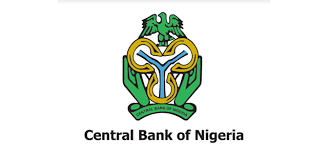The Central Bank (CBN) and the Securities and Exchange Commission (SEC) have imposed N1.502 billion fines on 10 major banks for violations of foreign exchange (forex) guidelines and other regulatory offences within the first half of 2024.
The fines, as revealed in a recent financial statements filed with the Nigeria Exchange for the period ending June 30, 2024, highlight the challenges these institutions face in adhering to stringent regulatory standards.
Among the sanctioned banks are some of Nigeria’s biggest financial institutions, including First City Monument Bank (FCMB), Access Bank, Stanbic IBTC, Zenith Bank, United Bank for Africa (UBA), Guaranty Trust Bank (GTB), Sterling Bank, Fidelity Bank, First Bank, and VFD Bank.
Zenith Bank bore the brunt of the penalties, paying N427 million — the highest amount among the sanctioned banks. Access Bank followed with N300 million, while UBA and Stanbic IBTC were fined N279 million and N229 million respectively. GTB paid N188.25 million in penalties, and smaller fines were imposed on Fidelity Bank (N30.11 million), FCMB (N24.15 million), Sterling Bank (N9 million), First Bank (N8 million), and VFD Bank (N8.1 million).
These violations have raised concerns within the industry and among civil society groups, with some calling for increased transparency in bank operations. Recently, the Arewa Consultative Movement, led by Alhaji Yusuf Kabir, petitioned for a forensic audit of one tier-one bank’s financials after it posted record profits.
In response to these concerns, the CBN reiterated its commitment to maintaining the stability of Nigeria’s financial system. The central bank emphasised that regular stress tests are conducted to identify vulnerabilities within the banking sector. These tests, according to the CBN, are a crucial part of its strategy to detect and mitigate risks before they can threaten the system’s stability.
A detailed breakdown of the infractions provides insight into the specific issues that led to these fines. For instance, Access Bank’s N300 million penalty was linked to the incorrect handling of funds received from a government agency. Meanwhile, Stanbic IBTC’s fines included non-compliance with SEC rules and CBN directives, amounting to N229 million.
Zenith Bank’s infractions were diverse, spanning late customer complaint resolutions, anti-money laundering findings, cybersecurity breaches, and non-compliance with CBN directives. UBA’s N279 million fine was imposed for late reporting on its 2021 cybersecurity assessment and violations of the CBN’s foreign exchange policies.
GTB, aside from its N188.25 million fine in Nigeria, also faced penalties abroad. The bank was fined N1.297 billion in Ghana and N311, 000 in Rwanda for violating foreign exchange market guidelines in those countries.
These sanctions serve as a stern reminder to financial institutions of the need for strict adherence to regulatory standards, particularly in light of Nigeria’s current economic challenges. As the CBN and SEC continue to tighten oversight, banks will need to reinforce their internal controls and compliance mechanisms to avoid further penalties.




